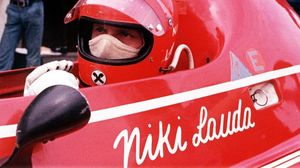Max Verstappen, the reigning Formula 1 world champion, recently shared his thoughts on the upcoming regulation changes for the 2025 Monaco Grand Prix, expressing skepticism about their potential efficacy. Known for its stunning views and challenging tracks, the Monaco GP is both revered and criticized among drivers. With the 2024 edition marred by incidents and strategic problems, the sport's governing body has introduced measures aiming to revitalize the race experience.
The Monaco Grand Prix is often described as the crown jewel of the Formula 1 calendar, but the recent edition held in 2024 raised alarms due to several factors leading to predictable outcomes. Verstappen reflected on the race, noting significant accidents, including one involving drivers Sergio Pérez, Kevin Magnussen, and Nico Hülkenberg, which quickly disrupted the event. Post-crash conditions turned the race strategic rather than competitive, leading to minimal overtaking opportunities.
To mitigate such issues, the FIA has decided to impose mandatory pit stops and possibly require drivers to utilize all tire compounds during the race. Yet, Verstappen is not convinced these changes will lead to the desired impact. "Om eerlijk te zijn maakt het me niks uit of we nu één pitstop moeten maken, twee pitstops, of 25 pitstops, ik vind het allemaal best," Verstappen stated, conveying his indifference toward the pit stop regulations. This sentiment portrays the driver’s attitude as being more focused on executing his responsibilities than on the minutiae of strategic adjustments.
While Red Bull Racing has excelled at pit stops historically, Verstappen appears unfazed by the introduction of mandatory stops, indicating he will simply follow the team's lead: "Ik moet het gewoon uitvoeren, wat ze besloten hebben." This response highlights his commitment to racing but also reveals his frustration with the constant changes imposed by regulations.
Adding fuel to the fire is Verstappen's concern about the fundamental challenges the Monaco circuit presents. He remarked, "Het is een van de circuits waarop het heel moeilijk is om in te halen. Hoe groter we de auto's maken, hoe lastiger het natuurlijk wordt om in te halen en daar te kunnen racen." His comments reflect the broader sentiment among drivers about the increasing difficulty of overtakes as cars grow larger and more engineered for aerodynamics.
This perception of challenge leads Verstappen to question whether the planned pit stop rules will genuinely improve the racing dynamic at Monaco. Despite the implementation of regulations to encourage action, he posited, "Ik weet niet of het gaat helpen om twee pitstops te maken, maar ik denk dat we daar vanzelf achter gaan komen, niet?" Such remarks signify his cautious optimism, mixed with skepticism, about the impact of new requirements.
Throughout his career, Verstappen has shown both talent and frustration with aspects of racing administration, often providing insight backed by years of experience and victories. He has conquered the streets of Monaco twice, proving his prowess, but the ever-evolving rules remain a frequent source of contemplation for the driver.
Monaco’s charm lies not just within its picturesque environment but also its unique challenges. The circuit’s tightness and technical nature often render overtaking all but impossible, causing races to be decided by strategy rather than dynamic racing. With the introduction of mandatory pit stops, there is hope to shake up the status quo and introduce variability. Verstappen, on the other hand, remains doubtful about the ultimate impact, emphasizing how intrinsic the challenges at Monaco are, regardless of regulatory changes.
Looking toward the future, Verstappen's insights will keep fans engaged as they eye the upcoming Monaco GP and speculate on how these new rules will play out. Will changes energize the race, or will they lead to another year of uneventful laps around the famed circuit? The anticipation looms large as teams prepare for what could be a pivotal moment for both the sport and Verstappen's quest for more victories.
Looking back, one wonders if the FIA's intentions will truly transform the experience of the Monaco Grand Prix. The 2024 race was emblematic of the struggles faced, culminating not only from track characteristics but also from the regulatory frameworks surrounding modern Formula 1. Whether the implementation of these new rules can inject life back onto the track remains to be seen, but Verstappen's voice will be pivotal as both driver and champion continue to navigate the intricacies of F1.



